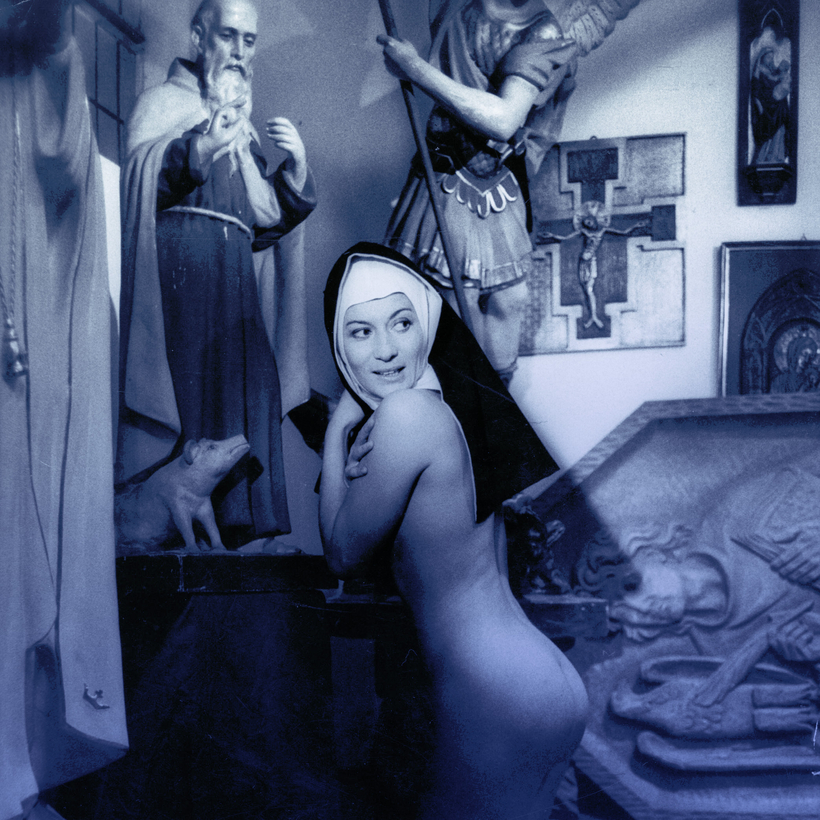Bethany Beal was 30 years old when she had her first kiss. As a devout Christian, she and her husband, David Beal, decided to save nearly all physical intimacy for their wedding night. Before getting married, the now 35-year-old built a social-media following with Girl Defined, a YouTube channel she shares with her sister Kristen Clark. They uploaded videos with titles such as “Physical Boundaries in a Romantic Relationship” and “Erotica: Should Christian Women Read It?”
Now her Instagram, which has 43,000 followers, sings a decidedly different tune. “Biggest O tip that will explode your pleasure,” reads a recent post. “Don’t wait for the bedroom to get turned on,” advises another. Almost all of her videos direct followers to her Ultimate Sex Course for Married Women, a $169 book of the sexual wisdom she’s accumulated during her marriage. Chapters range from “Making Sense of Orgasm” to “God’s Beautiful Design for Your Sexuality.”
Beal’s pivot to sex content was surprising to many followers. Fundamentalists felt it was sacrilegious, while skeptics thought it was hypocritical. “Can you acknowledge and apologize for perpetuating purity culture for years?” commented one follower.
But Beal is not an anomaly. In the past few years, a number of prominent Christian creators, many of whom initially earned their followings for content promoting modesty and abstinence, are now discussing sex. See, for example, YouTubers Paul and Morgan Olliges, whose videos went from “Boundaries in Christian Dating” and “Christian Guys on Modesty” to the live-streamed “Christian SEX Q&A,” which has 62,000 views.

For the past decade, a sex-positive movement has been brewing in Christian circles. It’s a direct response to purity culture. Many Catholic and evangelical teenagers are expected to pledge their commitment to abstinence until marriage. But an abstinence-only education neglects to teach young adults how sex actually works.
“A lot of what Christians know of sex and sexuality is very limited,” says Bethany Phillips, a co-host of the Her Sacred Sexuality podcast. “You can’t explore your sexuality at all if you’re not married, and it goes from literally zero to a thousand on your wedding day.”
Now some married women believe modesty actually goes against their religion. “I believe we are created by a god who made us beautifully and intentionally, and that includes our sexuality,” says Francie Winslow, the host of the Heaven in Your Home podcast.
“A lot of what Christians know of sex and sexuality is very limited.... It goes from literally zero to a thousand on your wedding day.”
It’s not a sexual free-for-all. It’s assumed that the sex being discussed is happening with heterosexual, married couples. Christian influencers are contextualizing it as an expression of God’s love, while also explaining what an orgasm is.
“My goal right now is to set women in evangelical circles free from what they’ve heard,” says Sheila Wray Gregoire, an influencer and the author of The Great Sex Rescue. Gregoire began as a traditional Christian mommy blogger a decade ago, but she noticed her traffic spiking whenever she referenced sex.
In 2019, she read one of the best-selling Christian marriage books, Emerson Eggerichs’s 2004 Love & Respect: The Love She Most Desires, the Respect He Desperately Needs. The book preaches “unconditional respect” for husbands, and includes chapters such as “Hierarchy—Appreciate His Desire to Protect and Provide.”
In the chapter about sex, Eggerichs “had this line … that if your husband is typical, he has a need that you don’t have,” says Gregoire. “I kind of freaked out, and my team freaked out, and we blogged about this heavily, how distorted this was to say that sex is just for men.”
These conversations are not all that different from the ones happening in mainstream feminism. Gregoire and Winslow both cite the 2017 #MeToo movement as inspiration for discussing sex, and blame much of the shame women feel about sexuality on dated power hierarchies. As #MeToo shook Hollywood, the hashtag #ChurchToo was created to discuss Christian sexual abuse. It forced some prominent pastors, including Andy Savage and Bill Hybels, to step down following accusations of sexual misconduct.
For those outside the Church, Christian influencers’ sudden adoption of these ideals rings hollow—especially because many influencers perpetuated sexist thinking in their earlier content. “I would hundred percent undoubtedly say from my research and from my experience, the reason that this movement is happening right now with influencers is because it is performing well [online],” says Kelsey Weekman, a journalist who grew up Christian and writes about fundamentalist Christian influencers.
“Over the years I have used my life season as the focus of my page,” Beal, who did not respond to an interview request, has said on her Instagram. “When I was single I focused on singleness. When I was dating that. Engaged. And now married … I absolutely respect your decision to unfollow me. Please do if you don’t find what I post edifying or encouraging.”
Whatever their motives, Weekman argues that generic videos about Christian sex aren’t enough to change Christian culture. “The best impact these influencers can have is on a local level, getting smaller groups of people to talk about it,” she says. “I just don’t think it’s by squirting whipped cream into your partner’s mouth on Reels.”
Kathryn Lindsay is the co-founder of the newsletter Embedded. Her writing has appeared in The Atlantic, The New York Times, GQ, and Vulture

